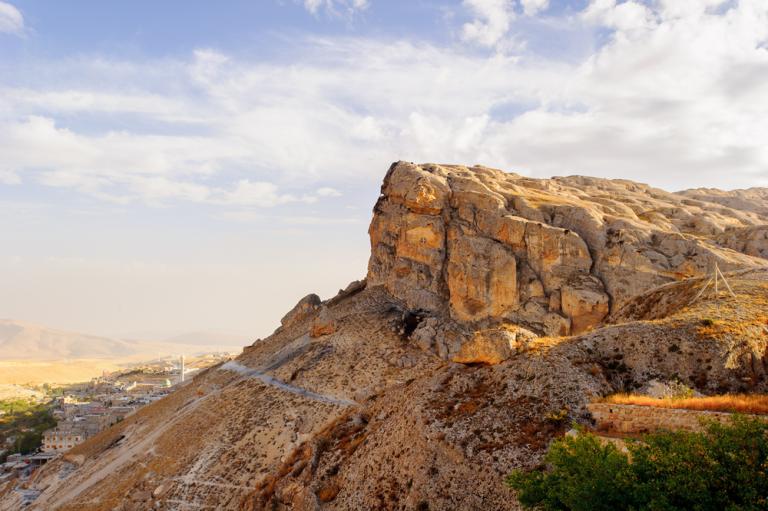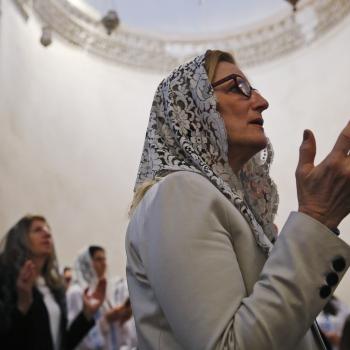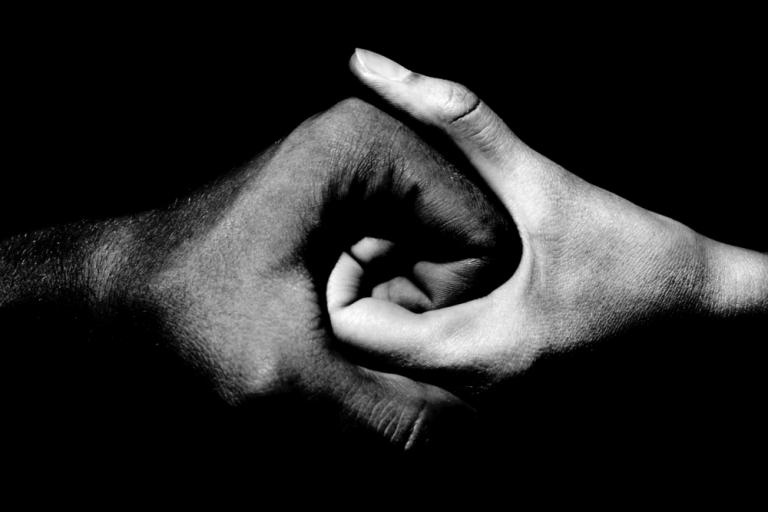By Nero Calatrava.
Ever since the authors of the Bible portrayed Baal as a wicked god, to whom worshippers would sacrifice their first-born sons, Baal has had an image problem.
It was not always thus. For hundreds of years before the Bible demonized him, Baal was worshipped by the Canaanites as a fertility god, the bringer of rain, the prince of peace, the defender of the people.
Around 1200 BCE, terrifying bands of warriors came from over the Mediterranean and laid waste to the cities of Canaan and thus began the long decline of Baal’s reign and the ascent of a new power in the Levant – the power of Israel’s God, Yahweh.
Imagine my surprise, then, when in April of this year I chanced upon a village in Syria where the locals continue to worship Baal, as their ancestors did thousands of years ago. For over two millennia this community has survived in relative obscurity in the Jabal an Nusayriyah mountain range. Along with other mountain sects such as the Alawites and the Druze, the very remoteness of their settlements has afforded them some protection against the waves of religious intolerance that have swept the Middle East with such alarming frequency.
The villagers were naturally very suspicious of me at first. Even Syrian officials rarely ventured into their community, so the unexpected appearance of an Englishman was cause for some considerable concern. However, after a long conversation with the village elders I was able to convince them that I posed no threat, and they allowed me to stay for several days as their guest.
The villagers were very secretive about their beliefs, but during my brief stay I was able to learn a few interesting details. To my great surprise, all of the villagers had Jewish names, and one of the elders claimed that they were “the true remnant of Israel, the only Jews who have remained faithful to our polytheist origins.” Another villager—an old woman called “Mother Aqra”—informed me that the Hebrews had originally worshipped many gods, including Baal, Anat, Dagon, and Asherah. Then, around three thousand years ago, a tiny sect emerged that proclaimed Yahweh to be the only god—not just the most powerful god, but the only one. This was not an entirely new idea, of course; the Pharaoh Akhenaton had said the same thing about Ra, the sun god, a couple of centuries before. But Akhenaton’s innovation died with him, while the Yahweh-only movement would go on to conquer the world.
I did not witness any ceremonies, rituals, or sacrifices while I was there, so I cannot speak to their religious practices. The women dressed modestly, though they did not cover their hair or wear veils, and there was the usual sexual segregation one finds all over the Middle East.
The high priest of the Children of Baal was known as Sheikh Abu Ibrahim (sheikh is an honorary Arabic title, used widely in the Middle Eastern to designate religious leaders as well as political ones). “Ours is the oldest religion in the world,” he told me one evening while we drank mint tea in his humble living room. When I told him I was a journalist, he asked me to alert the world to the plight of his community and he pled for asylum.
This little community has not escaped the ravages of the civil war, and this ancient religion may be about to succumb to the fate of so many others that are now largely forgotten. The survival of various pre-Islamic faiths such as the Mandaeans and the Yazidis shows that the first Islamic states in the Middle East were often more tolerant of religious diversity than their contemporary iterations. This permissiveness would scandalize the followers of so-called Islamic State (ISIS) today, who present the history of Islam as one of ruthless conquest. Yet the survival of groups like the Yazidis and the Children of Baal demonstrates how one-sided this narrative is, showing that the first Islamic states were more humane and permissive than is often thought.
The longer the civil war goes on in Syria, the bloodier it gets and the worse becomes the plight of the civilian population. I hope that the Children of Baal will survive this conflagration, just as they have survived many others before in their long and painful history. But as I sat talking to Sheikh Abu Ibrahim in his ramshackle house a few months ago, and we heard the deafening roar of Russian jets flying overhead, I couldn’t help but wonder whether his ancient faith may be on the verge of extinction.
Nero Calatrava is a pseudonym for a British journalist who must hide his true identity due to his work as a reporter in Syria and Iraq. Follow him on Twitter @CalatravaNero.














